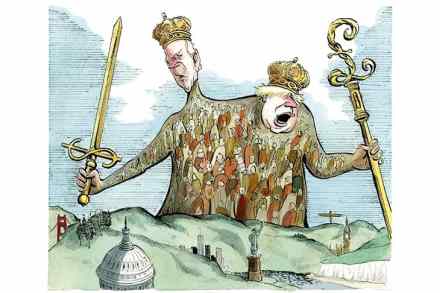Remember panic-buying? Here’s what will happen next time
It’s post-Christmas, and there are already murmurs about supermarkets with empty shelves. Just as with the petrol shortage in September and shortages of loo paper at the beginning of the first lockdown, these things can rapidly develop into major crises, purely as a result of panic-buying. Tesco, whose store on the Isle of Wight is reportedly especially empty post-Christmas, denies it has any problem with its supply chain — which had been threatened with disruption thanks to an industrial dispute involving the company’s lorry drivers in early December. People may, on the other hand, have stocked up more than usual in response to fears of a post-Christmas lockdown — a fear which






